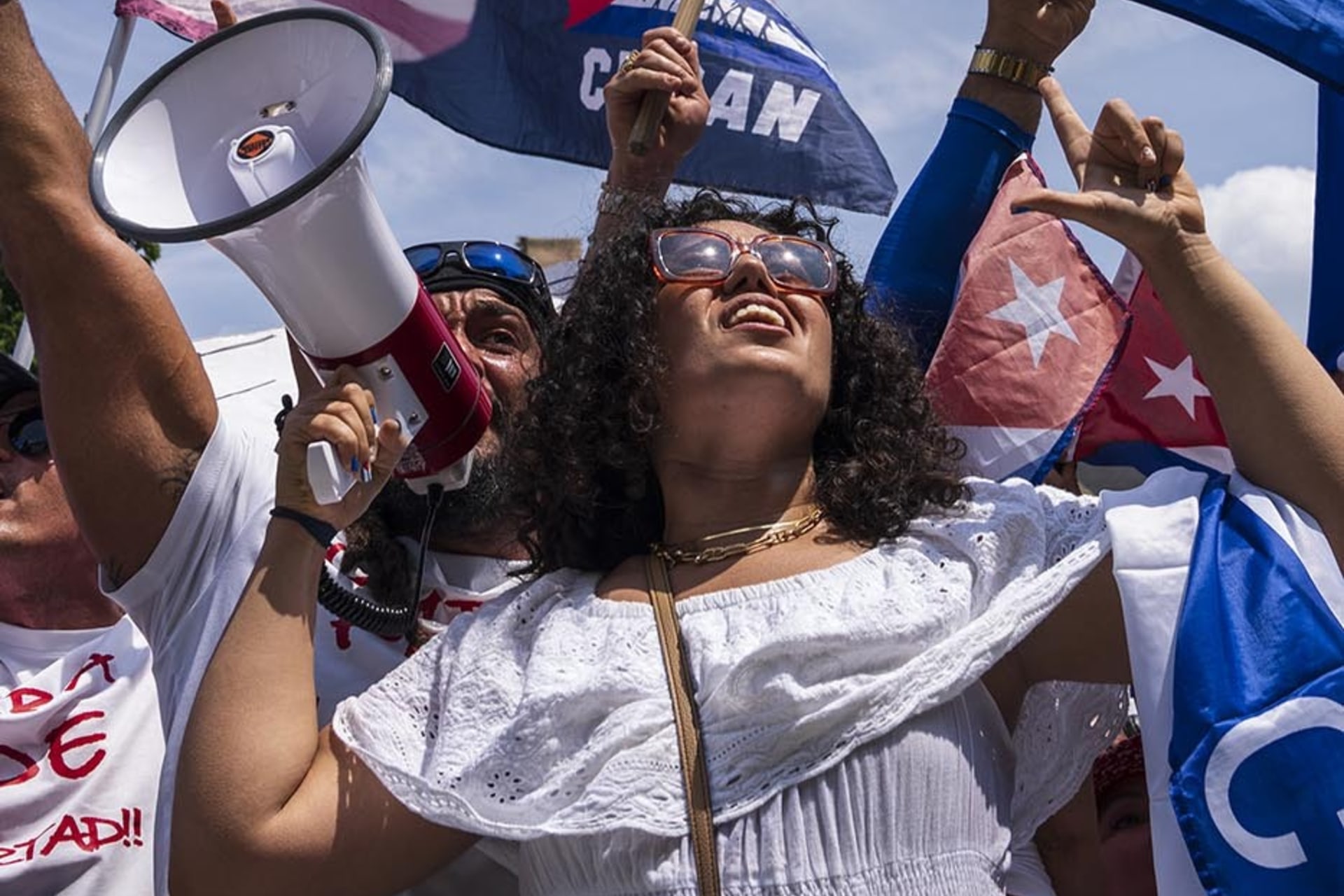Saudi Arabia and the Future of Afghanistan
Published
U.S. experts say any new approach to bringing stability to Afghanistan must be regional in scope. Saudi Arabia, with historic ties to the Taliban and Afghan Pashtuns, could hold a principle seat at the table.
This publication is now archived.
Introduction
Reports of Saudi-brokered talks between Afghan officials and the Taliban in late 2008 prompted a new round of speculation about the role Riyadh might play in the future of Afghanistan. Amid U.S. calls for a regional approach to the Afghan crisis, observers and politicians--including President-elect Barack Obama during the U.S. presidential campaign--have said Saudi intervention could shape the success of the Western-led mission, from fostering talk with militants to encouraging Pakistan to help stabilize Afghanistan. But some analysts say Saudi brokering is motivated by more than just a desire to bring peace to Afghanistan. Following the reported September 2008 talks, only Iran condemned the negotiations; some believe the Afghan war zone has become a battleground for influence (ISN) between Riyadh and Tehran, as it was during the 1980s and 1990s.
Saudi Ties to Afghanistan
Saudi Arabia’s ties to Afghanistan exploded into view on September 11, 2001. Saudi national Osama bin Laden, the 9/11 mastermind and al-Qaeda chieftain, was given refuge by the Taliban in Afghanistan. But the kingdom’s connections to Afghanistan predate the U.S. terror attacks. Beginning in the late 1980s, Saudi Arabia--along with the United States, Pakistan, and others--began supporting the Afghan resistance movement against the Soviet occupation. Saudi Arabia funneled money and fuel directly to Afghans, as well as through Pakistan’s covert intelligence agency, the ISI. Pakistani journalist Ahmed Rashid writes in his 2000 book, Taliban, that the Saudis gave nearly “$4 billion in official aid to the [mujahadeen] between 1980 and 1990, which did not include unofficial aid from Islamic charities, foundations, the private funds of Princes and mosque collections.”
 But Saudi policy in Afghanistan suffered a setback after the fall of the Mohammad Najibullah government in 1992. Unlike Iran, which primarily supported Shia groups (though Tehran later provided funds to Tajiks, like former Afghan President Burhanuddin Rabbani, and Uzbeks, including warlord General Abdul Rashid Dostum), Pakistan and Saudi Arabia turned their funding support to Saudi-trained Wahhabi leaders. (Wahhabism is a conservative brand of Sunni Islam, and is the dominant form of Islam in Saudi Arabia). These pro-Wahhabist Pashtuns would eventually form the core of the Taliban’s leadership. Following the ouster of Najibullah, infighting erupted within mujahadeen factions, and two key Saudi-backed pro-Wahabbists split. With warlords Gulbuddin Hekmatyar and Abdul Rasul Sayyaf going separate ways, Saudi influence in Afghanistan was dramatically weakened.
But Saudi policy in Afghanistan suffered a setback after the fall of the Mohammad Najibullah government in 1992. Unlike Iran, which primarily supported Shia groups (though Tehran later provided funds to Tajiks, like former Afghan President Burhanuddin Rabbani, and Uzbeks, including warlord General Abdul Rashid Dostum), Pakistan and Saudi Arabia turned their funding support to Saudi-trained Wahhabi leaders. (Wahhabism is a conservative brand of Sunni Islam, and is the dominant form of Islam in Saudi Arabia). These pro-Wahhabist Pashtuns would eventually form the core of the Taliban’s leadership. Following the ouster of Najibullah, infighting erupted within mujahadeen factions, and two key Saudi-backed pro-Wahabbists split. With warlords Gulbuddin Hekmatyar and Abdul Rasul Sayyaf going separate ways, Saudi influence in Afghanistan was dramatically weakened.
Aiding the Rise of the Taliban
Some analysts say it was as much strategy as ideology that shaped Saudi Arabia’s early ties to the Taliban. Riyadh helped foster the rise of the Taliban beginning in the mid-1990s largely to serve as a proxy force against Afghanistan’s post-Soviet leadership. But Saudi Arabia also supported the radical Islamic militants to counter Iran. “Saudi Arabia still feared Iranian influence in Afghanistan and Central Asia,” writes U.S. journalist Steve Coll in Ghost Wars: The Secret History of the CIA, Afghanistan, and Bin Laden, From the Soviet Invasion to September 10, 2001.
Yet there is little disagreement that religious ideology--specifically, an interest in exporting Wahhabism--played a key role in Saudi support. Rashid writes that it was Riyadh’s Muslim legal scholars, or the ulema, that pushed the Saudi-Taliban connection, building up grassroots support for the Taliban during Friday prayer services in the mid-1990s. “In return, the Taliban demonstrated their reverence for the Royal Family and the ulema and copied Wahhabi practices such as introducing religious police,” Rashid writes. But Coll suggests that early Saudi support was extended with a belief that the Taliban--like the Islamic militia that helped establish modern Saudi Arabia--would evolve into a responsible state. Refusal to hand over Osama bin Laden to Saudi officials in 1998, and the Taliban’s sheltering of al-Qaeda, proved those hopes shortsighted.
Pushed by international pressure--and still smarting from the bin Laden rebuff--Saudi Arabia severed official ties with the Taliban following 9/11. “The Taliban government has paid no attention to the calls and pleas of the Kingdom of Saudi Arabia to stop harboring, training and encouraging criminals,” the Saudi government said in a statement two weeks after the terror attacks. The end of diplomatic ties with the Taliban did not mark a halt to Saudi interest in Afghanistan, however. In February 2002 Riyadh reopened its embassy in Kabul, establishing official channels with the new Afghan government, and Saudi officials have expressed interest in investment opportunities. Aid dollars also continue to flow. One year after severing ties with the Taliban government, Saudi Arabia announced its humanitarian assistance efforts had topped $230 million--more on a per capita basis “than any of the major donors.” (By contrast, U.S. redevelopment funds for fiscal year 2002 were roughly $26.9 million, according to USAID). Donations of food and relief supplies continued through the end of 2008.
Peace Brokers or Strategic Lobbyists?
Despite food aid and the occasional business venture, Saudi ties to Afghanistan remained out of the public eye for much of the last decade. It is not clear what spurred Saudi involvement in the late 2008 talks with the Taliban. In October, the Saudi-owned daily Asharq Al-Awsat reported that a Taliban delegation met with Afghan officials in Mecca during Ramadan. Attendees included Taliban leader Mullah Omar’s spokesman, Mullah Mohammed Tayeb Agha, a number of former Taliban government officials, and a smattering of Afghan officials, including parliamentarian Arif Noorzai. Additional talks were reportedly attended by Afghan President Hamid Karzai’s brother, Qayum Karzai. The discussions were reportedly hosted by King Abdullah in the Saudi city of Mecca. Saudi officials have offered few details of the meetings, though Saudi Foreign Minister Saud al-Faisal confirmed talks were held (AFP) “at the request of Afghan President Hamid Karzai.” Saud added that further Saudi involvement was conditional on Afghan parties laying down their arms and entering the political mainstream. F. Gregory Gause III, a leading expert on Saudi Arabia at the University of Vermont, says that given Riyadh’s historic ties to the Taliban, it’s unlikely the kingdom acted solely out of strategic interests. “My guess is they’re doing it at the behest of the Afghan government,” Gause says. “The Saudis were burned by their connection to the Taliban. It got them into big trouble after 9/11, obviously, and it caused problems for them before 9/11. It seems to me that the only reason that they would do this is if Karzai had asked them to.”
Others believe Saudi Arabia is motivated by a more strategic end. CFR Senior Fellow Daniel Markey says Saudis are aiming to be “unifiers of the Sunni community” in Afghanistan. During a recent visit to Afghanistan, Markey says he was told by a senior Western official that Saudi Arabia wants to prevent ongoing war within the Sunni community, partly because Iran benefits from such a war. Mai Yamani, an expert on Saudi Arabia and a visiting scholar at the Carnegie Endowment for International Peace, says that explanation is plausible. “You have to look at it in the context of the new Saudi foreign policy,” Yamani says. “With all the changes in the region, and especially the challenge and the threat of Iran, the Saudis have become more active in their foreign policy.” Yamani adds: “Everything that Saudi Arabia is doing at the moment is in trying to contain Iran.” In recent months Saudi Arabia has participated in or facilitated talks on peace between Israel and Arab states, as well as reconciliation efforts in Iraq and Somalia.
Leveraging Saudi Support
Whether Saudi Arabia will successfully leverage its Taliban and regional ties remains uncertain. In calling for a regional solution to the Afghan crisis, U.S. officials and experts have focused on Afghanistan’s eastern neighbor, Pakistan, where al-Qaeda and Taliban militants have found refuge in the troubled tribal areas. But a possible Saudi role in bringing stability to Afghanistan is gaining new attention. According to the Economist, Saudi Arabia is uniquely positioned to serve as an interlocutor between Kabul and Western governments; the country’s conservative Sunni Muslims have ties with the Taliban, and it was one of just three governments to recognize the Taliban’s 1996-2001 Islamic emirate. Journalist Rashid and Barnett R. Rubin, an Afghanistan expert at New York University, writing in the November/December 2008 Foreign Affairs, also see a significant role for Saudi facilitators. They say Saudi Arabia could leverage its role as “a serious investor in and ally of Pakistan, former supporter of the Taliban, and custodian of the two holiest Islamic shrines” to convince Pakistan to do more to resolve regional issues, and lure reconcilable Taliban elements to put down their weapons.
Washington, too, has endorsed the concept of an expanded Saudi role in the region. State Department officials have praised Saudi efforts to combat terrorism, and White House spokeswoman Dana Perino, speaking in mid-November 2008, said the Bush administration supports Karzai’s initiatives to push for Saudi-brokered talks. While President Bush is “skeptical about what the Taliban’s ultimate intentions are,” Perino told reporters, the administration recognizes that “at some point there might be some Taliban willing to reconcile and to renounce violence and to be productive members of the Afghanistan society.” Gen. David Petraeus, the new head of U.S. Central Command, has also expressed interest in engaging Saudi Arabia to help with the Taliban (NYT).
And yet past Saudi mediation efforts have some analysts skeptical about their efforts in Afghanistan. Saudi diplomacy in 2007 aimed at promoting reconciliation between Hamas and Fatah in Gaza proved unsuccessful, as did attempts to forge lasting peace in Lebanon. Saudi Arabia was excluded from additional negotiations with in Hezbollah there in mid-2008, replaced instead by Qatar (NYT). “The question [in Afghanistan] is what are the possibilities of success for Saudi Arabia?” Yamani says. Adds Gause: “The chances of the Saudis playing a major role in bringing stability to Afghanistan are very low.” Gause notes that a complicating factor is the lack of unity in the Taliban’s command structure. “It is one thing to bring relatively strong players together and help them cut deals, since the strong players themselves can enforce those deals. But in Afghanistan are there any strong players? The Karzai government seems pretty weak.”t
Colophon
Staff Writers
- Greg Bruno





